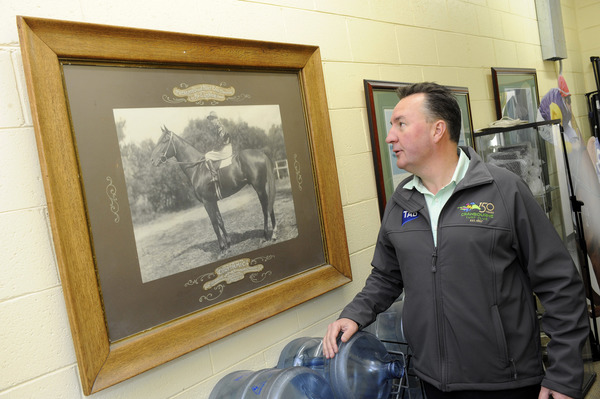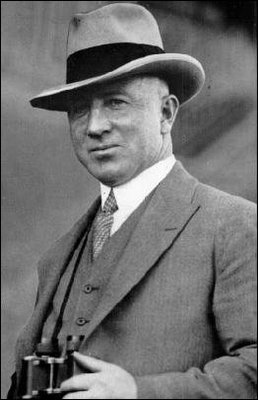
By Garry Howe
In the early part of the last century, Jack Holt was considered Australia’s top racehorse trainer – the Bart Cummings of his era.
The Epsom-based trainer never married and lived out his life with his spinster sisters on the Mornington Peninsula and, through his exploits on the racetrack, became known as the Wizard of Mordialloc.
What few people realise is that the master horseman grew up and first plied his trade in and around Berwick – and may have remained there if not for a particularly wet winter in 1908.
Jack was the fourth child to Irish immigrants Michael and Mary Holt who lived in a humble cottage just opposite the gateway to the Edrington estate.
Born in November 1879, he was given his father’s name but became more widely known as Jack.
Author Maurice Cavanough, in his Jack Holt biography The Wizard of Mordialloc, describes his father Michael Holt was a typical Irishman – thick set, round face, ready wit and infectious laugh – and had considerable skill as a veterinarian.
“People from Belgrave to Hastings called upon his skills and good nature and there were many nights when he left his family, not to return until dawn, in the cause of a sick or injured animal,” Cavanough wrote.
The children attended the weatherboard Catholic church in Berwick of a Sunday, they all sang in the choir and learned to ride a horse as soon as they could walk.
Young Jack gave an early indication of his business acumen, earning pocket money by laying the drag ahead of the local hunt and, when he left school, worked briefly for the postal department delivering mail on his pony.
Cavanough wrote that the postal route took in many wealthy property holders in the district and “the lad’s dignified bearing, good manner, pleasant disposition made a strong impression and many of them became patrons when he eventually set up as a horse trainer”.
Few were as impressed with the boy than a gentleman named E.L. Vieusseax, the owner and headmaster of Berwick Grammar School.
A fine sportsman, he turned out some good cricketers from the school, including Test all-rounder Harry Graham.
Although stern as a disciplinarian, Mr Vieusseax was said to have a good heart and a friendship soon developed between the principal and messenger boy over a friendly game of billiards.
In 1896, when only 16, Jack resigned from the postal department and set himself up as a trainer of racehorses and ponies. He quickly gained the patronage of some of the most prominent families in the district.
One of these was an upright and colourful gentleman named Richard Grice, who had one of the biggest stables in the district.
Members of the Brunt family, who had lived in the Berwick district almost from its formation, also encouraged the young trainer.
It was with a horse named Flying Fox, owned by A. and G. Brunt, that Holt won his first metropolitan race in 1911.
Cavanough wrote that in his early years as a trainer, Jack Holt made a number of successful visits to city racecourses and usually stayed overnight at the home of S.D. Fisher, the jockey who won the 1904 Melbourne Cup on John Wren’s horse Murmur.
“For the most part, however, he was content to place his horses at meetings in the Gippsland district, with reasonably satisfactory results.
“He trained on the Beaconsfield Racecourse and how long he may have been content to stay there is a matter of conjecture,” the author wrote.
“However, the wet winter of 1908 brought about a dramatic change in his life. He found the mountain soil at Beaconsfield too wet to work his horses and he made what was intended to be a temporary change to Epsom racecourse, where he rented stables.
“He was delighted to find how well his charges worked in the sandy going at Epsom and made the move permanent.”
In the 17 seasons from 1918-19 to 1934-35 he headed the Victorian Trainers’ Premiership 13 times, was runner up three times and third once.
He won all the major races in Melbourne and Sydney – many on multiple occasions – and trained more than 1000 winners in his career for an estimated £500,000 prizemoney.
His best horses were Eurythmic, who won 10 races on an end in 1920, including the Caulfield Cup; Heroic, winner of the Newmarket Handicap and Cox Plate, who went on to become a champion sire, and Hall Mark, who won a Melbourne Cup and both the AJC and VRC Derbies.
A huge framed photograph of Eurythmic has hung for many years in the scales area of Cranbourne Turf Club.
Jack Holt died of coronary complications in 1951 and was laid to rest in Berwick Cemetery. He bequeathed most of his estate of £200,000 to St Vincent’s Hospital to establish its Institute of Medical Research.







